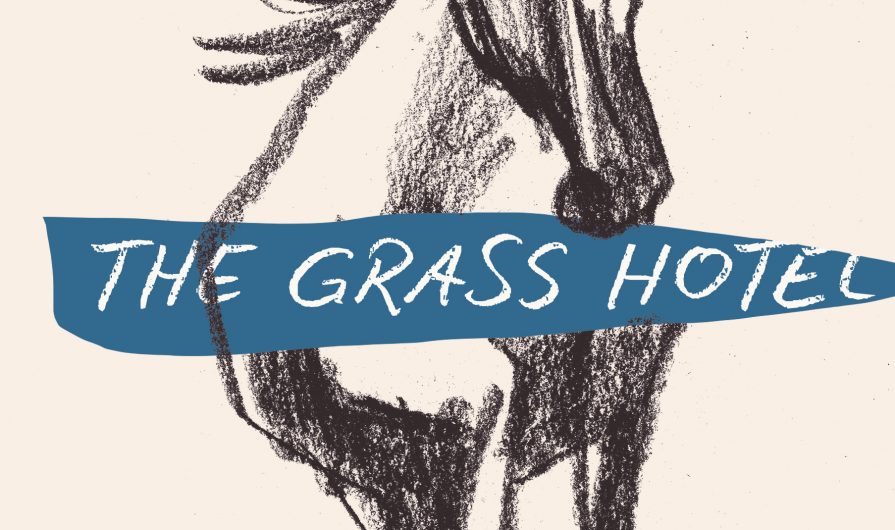Craig Sherborne is a poet, playwright, and novelist. His debut memoir Hoi Polloi was shortlisted for both the Queensland and Victorian Premiers’ Literary Awards in 2005, and his follow up Muck won the Queensland Literary Award for Non-fiction in 2007. His latest fiction novel The Grass Hotel is an engaging story about a mother’s relationship with her son.
Matt: Some parts of the novel were written in second person — especially the aspects that involve the son. Do you usually write in this point of view? How do you find it?
Craig: Yes, I’ve done it before. It is very unusual to write in second person. But in poetry, it’s used as your addressing somebody directly. In this book The Grass Hotel, a woman who is dead, is speaking fictitiously through the imagination of her son, so it seemed the right thing to do. And I think I’ll use it again.
M: Do you prefer writing in the first person or the second person?
C: I think the second person now. I have written in first person quite a bit, and the third person. But I like the second person, because it’s like you’re addressing one individual, rather than being so distant from the page and distant from the characters. If you can have someone addressing a character in the book, it just feels more exciting.
M: I read that your mother had Alzheimer’s — so you were familiar with the disease, but did you have to do much more research on dementia before writing?
C: No, not at all. My mother had dementia; I sort of witnessed it all. The idea of being a writer and writing fiction is to imagine and make it up. It’s easier than you think if you have a modicum of talent and a bit of practice over the years. Having witnessed it from the outside, it wasn’t all that difficult. Well, I say that, but it probably was that difficult. I’m a very slow writer, I only write two lines a day. But those two lines would come quite easily, quite naturally after just recalling what my mother looked like, what she said or didn’t say, and making the rest up.
M: I really liked the parts of the novel that were from the mother’s perspective. What made you decide to write this book? And what made you decide to do it from that perspective?
C: I hadn’t written a book for about 2 years. I wasn’t looking to write memoir and wasn’t looking to write non-fiction or poetry. I wanted to write a set of words that were aesthetically pleasing to me and that weren’t straightforward mundane sentences. I wanted something that was poetic — something that disarmed me and surprised me.
I read so many books where the sentences are boring. So, I thought, I’m not going to do this crap anymore. And then when you write the first line, ‘You were born with your hands in your pockets, your heading hanging down from the soul up,’ it seemed like a lovely rhythm. It was sort of like writing a piece of music. I used to play the piano; you get into this muscle memory rhythm, it just all flows.
In writing this book I found bars and rhythm like crotchets and quavers. It wasn’t just sitting on the page it was leaping around like musical notes. And I did like the fact that by writing inside someone’s head, you’re writing abstractly. It becomes more exciting. The world as you get older gets rather boring, Matt. You’ve seen and done it all, and if you want to tell a story or write something about it, then the words become more important than the story. The words come first, the rhythm and the music of it. The French poet Rambeau called it the music of the mind and it came first — the story fell in behind.
M: When I started reading, I was surprised by how poetic it was. Were you scared the poetic nature would deter some people from reading or liking it?
C: No, I never think in terms of whether other people will like it or not. For me, writing is a very self-centered activity. I’m writing for myself. I then see if my publisher likes it. When suddenly it goes out in public, you realise other people have opinions about it that I never considered. How self-centred of me!
M: Did you prefer writing this fiction piece compared to your previous memoirs?
C: I like this book. I think this is my best book and my favourite book and it links in with all the other books. I probably wouldn’t have written this book if I hadn’t written all those books that have gone before — both fiction and memoir, and poetry. In some ways, this is the apotheosis of the project I’ve been working on for 35 years.
M: Do you find it difficult to write such personal stories and publish them?
C: No, I don’t. It’s after you’ve written them that the problems start. Or after it’s published. Then other people start getting stuck into you about it because we live in puritanical times. It’s always been expected. I’ve always read books from primary school all the way through where it all seemed to be about individuals escaping the strictures of social norms and of cultural expectations. People trying to escape, having been made to belong to a society or to a group. Now it’s the other way around and everybody’s looking to work as a pack and kill the individual. I work very much from the point of view of an individual. I don’t find it hard at all, I don’t see why other writers don’t do it.
M: There were parts of the book that I find quite relatable, such as the small comments about being compared to the cousins and obviously the difficulties of dealing with older people. Did you expect people to be able relate to this book?
C: Well, I hope so. I mean we all die. We all get compared to other people. We all get criticised. We all have to compete for our little space in the world. We all have to push back against other people’s expectations and heckling of our lives. And I hope that people can see they can relate to that. But as I say, at the time of writing, I would never think of such a thing. But now you’ve asked me the question, I go well yes, if you don’t relate to certain parts of this, at least the dying part.
M: When I started it, I wasn’t sure about it but then got really into it. I think I read the last 100 pages in two sittings.
C: Everyone thinks you start off with the story. As I’ve said, I didn’t start off with the story. I started out with some nice lovely musical words in my head. After that the horse stuff in the book started to form. The dementia stuff with the mother — that really came third. I have horses, I ride horses, and I wanted to write about it because I’ve spent a life with them. So, I wanted to introduce that, and it’s kind of the physicality of the horses in comparison to the fading physicality of someone dying. The physicality of being on a horse; a beast that’s 550 kilograms, and it allows you to sit on its back. You become this perfect structure of grace that you can’t have. Again, this is the second thing I can write about till the cows come home — or the horses come home, more like. Very quickly the dementia stuff happened as well, as kind of a third link in the whole story.

